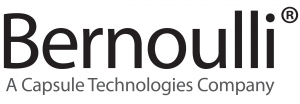Bernoulli to Exhibit at 19th Annual NPSF Patient Safety Congress

Bernoulli, the leader in real-time solutions for patient safety, will be exhibiting at Booth 715 at the 19th Annual NPSF Patient Safety Congress, May 17-19, 2017, at the Renaissance Orlando at SeaWorld hotel, Orlando, FL.
Bernoulli will be highlighting its capabilities in real-time data, medical device integration and patient safety solutions, as well as its latest application for the continuous monitoring of patients at risk of respiratory depression—Respiratory Depression Safety Surveillance (RDSS).
“Analysts have stressed the importance of hospitals providing the right information, at the right time, in the right format and to the right clinicians to enable real-time patient safety initiatives,” said Bernoulli CEO Janet Dillione. “The NPSF Congress us to engage with IT leaders on the frontlines, hear how they are approaching and adapting to healthcare’s rapidly changing landscape, and learn the real costs and considerations they face in finding a solution to their hospital’s unique challenges.”
RDSS utilizes comprehensive real-time data to help clinicians quickly recognize and respond to signs of respiratory distress. RDSS includes exclusive analytics with multi-variable thresholds—adjustable by the care facility—to identify clinically actionable events while significantly reducing the overall number of alarms communicated to remote and mobile clinicians, mitigating the risk of alarm fatigue.
The platform provides connectivity to a hospital’s existing fleet of pulse oximeters and capnographs from a wide range of vendors, including Medtronic, Masimo and others. RDSS also integrates with mobile clinical communication tools to deliver the right alarms and alerts to the right caregiver at the right time.
A forthcoming clinical study of patients diagnosed or at risk of obstructive or central sleep apnea, to be published in the Journal of Biomedical Instrumentation & Technology, the use of Bernoulli’s RDSS analytics reduced 22,812 alarms generated by bedside capnographs and pulse oximeters to just 209 respiratory depression alerts delivered to mobile clinicians—a reduction of 99%. More importantly, the RDSS analytics distributed alerts for every patient that experienced an actual respiratory depression episode.
Follow Bernoulli on LinkedIn and Twitter for additional updates, as well as access to case studies, thought leadership and other information.


